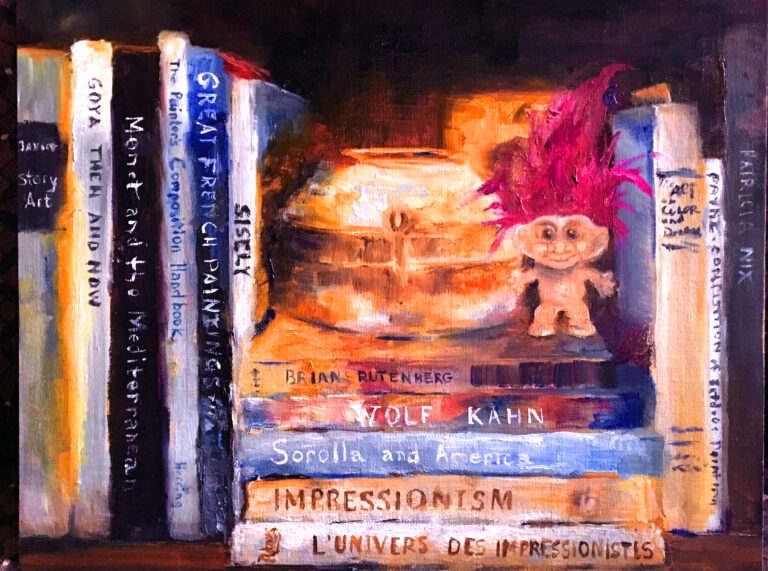
Imagination is the mind’s ability to wander through possibilities and impossibilities to create ideas and original thought. It is what drives innovation and invention, and we wouldn’t enjoy our modern comforts without it. Imagination also takes us out of our comfort zone. It makes us call into question accepted norms and injustices. It makes us question our values and beliefs. Without imagination, we would not have progressed into the advanced society we are today.
The human drive for advancement comes from a drive for ever-increasing happiness. The things we create, generally speaking, improve our lives. The end results of imagination are technology, art, and invention. But the path to those ends is what elicits happiness in the mind through idea generation. This is how imagination and happiness are connected. The mind is happy when it is performing its most-unique ability to imagine.
Understanding that imagination is one path to happiness brings value to activities that are considered imaginative. It also exercises the mind’s ability to be creative in less-imaginative activities. For instance, participation in the arts may transform into innovative thinking and problem-solving in industries. Painting, writing, or creative activities may result in progressive thinking about social or economic issues. Imagination prevents the status quo from becoming the source of our stagnation.
Imagination is about forward thinking, and although we can be happy to reflect on positive past experiences, looking forward to the future typically brings hope and happiness. Regardless of the positive or negative nature of our past recollections, there is always a chance for improvement in the future. We must use our imagination to create that hope for happiness in the future. If our past has been rough, and we have no imagination, we may not be able to hope for a better future.
The world is full of antidepressants and behavioral health recommendations to get people out of their slump. The ability to be happy is diminishing among the public despite our improved living conditions and access to technology. This could be a response to our reduction in imaginative activities. Looking at social media sites, surfing the internet, or playing video games is not using the imagination. Watching television is not imaginative. These activities are simply injecting our minds with the creativity of others.
In order to be happy, we must use our imagination to create something. If creating is not your forte, then visit museums, art exhibits or simply spending some quiet time pondering into the canvas of a painting you love. It could be writing a poem or decorating a cake. Whatever it is, understanding that imagination is a pathway for happiness is a recipe for life fulfillment.
Have a great week!
dei gratia, Milessa

“The best paintings create a story. My stories have happy endings.”
Milessa was born a big city girl in a dry, desolate area of Texas where the only trees she saw were mesquite and the only things to climb was her horse. She remembers a lot of brown but that did not stop her from dreaming in beautiful, bold color. She paints in a playful and visual style.